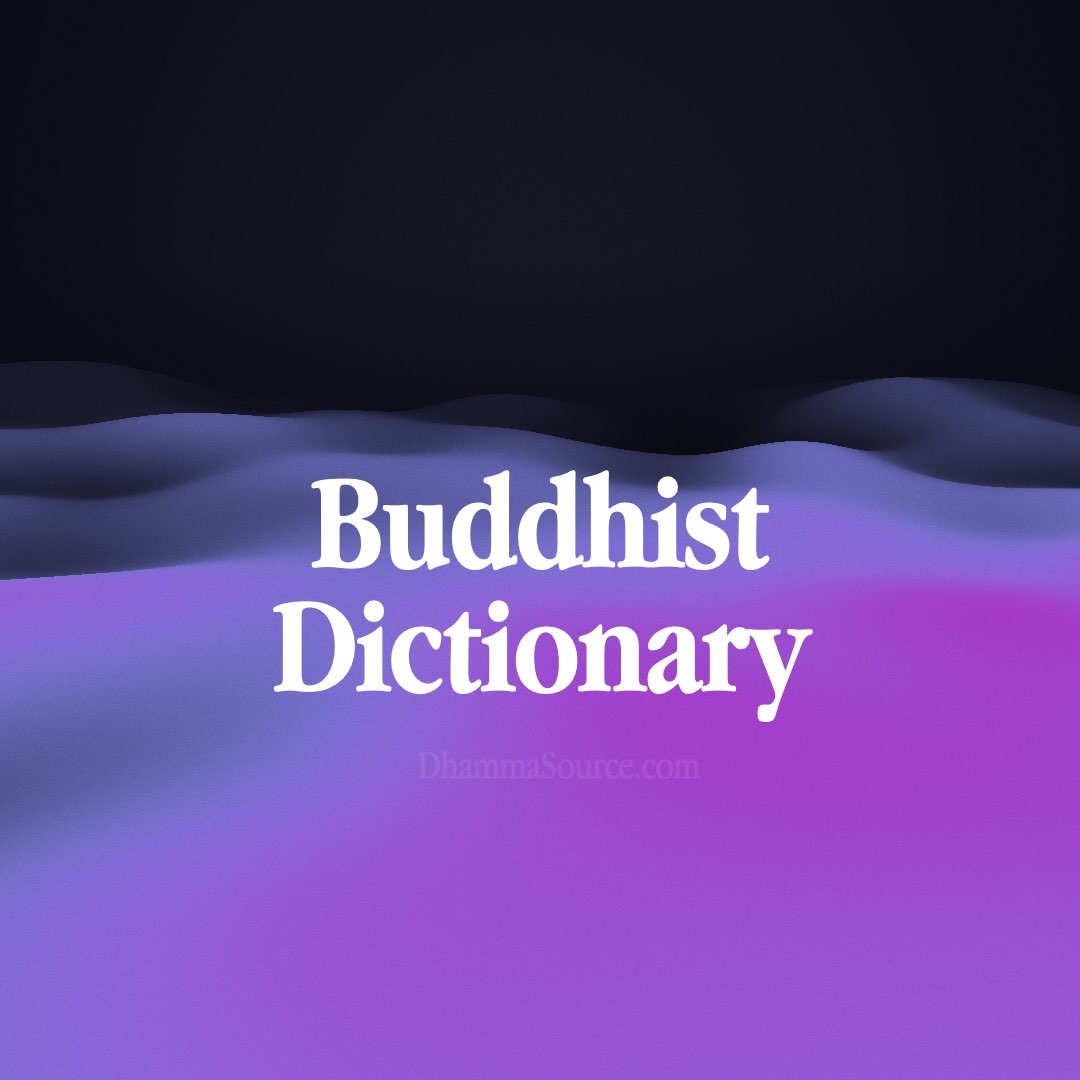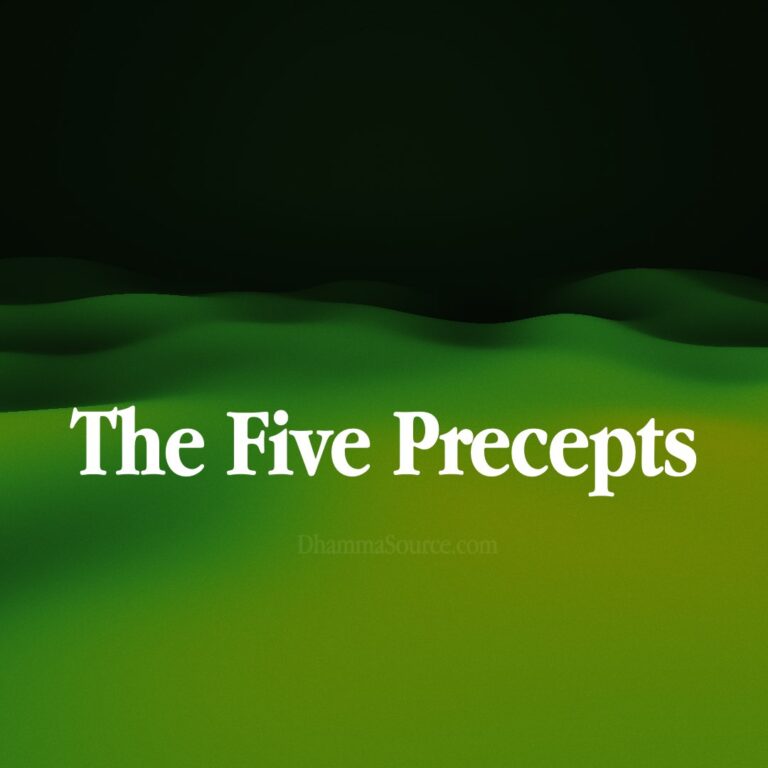Buddhist Dictionary

Upon your introduction into Theravada Buddhism you may come across many Pali terms or words that you may not know. Below is a quick list of common ones. As well as a download to a dictionary for much more.
Ajaan (Thai): Teacher; mentor.
Arahant: A person who has abandoned all ten of the fetters that bind the mind to the cycle of rebirth, whose heart is free of mental defilement, and is thus not destined for future rebirth. An epithet for the Buddha and the highest level of his noble disciples. Sanskrit form: arhat.
Brahmavihara: Sublime attitude of unlimited goodwill, compassion, empathetic joy, or equanimity.
Buddho: A meditation word meaning “awake.”
Deva: Literally, “shining one.” An inhabitant of the terrestrial or heavenly realms higher than the human.
Dhamma: (1) Event; action. (2) A phenomenon in and of itself. (3) Mental quality. (4) Doctrine, teaching. (5) Nibbana (although there are passages in the Pali Canon describing nibbana as the abandoning of all dhammas). Sanskrit form: dharma.
Jhana: Mental absorption. A state of strong concentration focused on a single sensation or mental notion. Sanskrit form: dhyana.
Kamma: Intentional act. Sanskrit form: karma.
Metta: Goodwill; benevolence. See brahma-vihara.
Nibbana: Literally, the “unbinding” of the mind from passion, aversion, and delusion, and from the entire round of death and rebirth. As this term also denotes the extinguishing of a fire, it carries connotations of stilling, cooling, and peace. Sanskrit form: nirvana.
Pali: The name of the earliest extant canon of the Buddha’s teachings and, by extension, of the language in which it was composed.
Sala: Hall.
Samvega: A sense of dismay, terror, or urgency.
Sangha: On the conventional level, this term denotes the communities of Buddhist monks and nuns. On the ideal level, it denotes those followers of the Buddha, lay or ordained, who have attained at least their first taste of the deathless.
Sankhara: Fabrication.
Satipatthana: Establishing of mindfulness. The act of being ardent, alert, and mindful to stay with any of four things in and of themselves—body, feelings, mind states, or mental qualities—while putting aside greed and distress with reference to the world.
Sutta: Discourse. Sanskrit form: sutra.
Upasika: A female lay-follower of the Buddha.
Vipassana: Insight.
Wat (Thai): Monastery.







